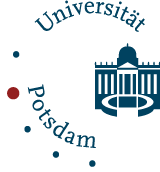Does literature progress “one funeral at a time”, as Max Planck famously claimed about science? Is the change mainly driven by the turnover of “generations”, or cohorts? Who contributes more to change in literature and arts – “old masters” or “young geniuses”? And how can we separate the different causes of cultural change?
A trendline spanning a period of time is one of the most common graphs in the computational humanities. Often, such a trendline is explained with a single causal mechanism: a cause C is driving a trait T over a period P. For example, the proportion of negative words (T1) during the 20th century (P1) in literature is increasing due to “negativity bias” (C1). Or, the proportion of abstract words (T2) in the 19th century (P2) is growing due to urbanisation (C2). On the surface, this approach may look sufficient but, under the surface, there are rocks: not only there could be multiple causes, but also different parts of the trendline may be driven by different causes. In computational humanities, there is no effective method for “dissecting the trendline” and uncovering these hidden causal mechanisms.
The scholars of evolution, however, do have such a method: a simple and elegant – and famous – equation that was suggested by the mathematician George R. Price over 50 years ago, known as “the Price equation”. It allowed biologists to uncover the potential driving forces behind evolutionary change. The forces behind literary – and, more broadly, cultural – change are still little known – and much debated. The Price equation can give us the answers.
The Driving Forces of Literary Evolution: Tracing the Causes of Cultural Change with the Price Equation — a talk by Oleg Sobchuk, researcher at the Department of Human Behavior, Ecology and Culture, Max Planck Institute for Evolutionary Anthropology, Germany
